QuestionJessica,
My husband rescued a stray and she delivered a total of 9 kittens on Friday evening. She wasn't feeling well on Monday, so we took her and the kittens to the vet. She was running a fever, so the vet put her on amox. Today, devastatingly, we lost 3 of the kittens and it appears that her milk supply has dried up. The vet seems to think she was overwhelmed with the demand as well as she is very young herself. I tried feeing the kittens with a bottle, but didn't have much success...their weights range between 5 and 6 oz. Will the momma kitty's milk come back or will we need to force feed the kittens to help maintain? I'm extremely nervous that we will lose more of the kittens. Should I separate the kittens from momma kitty and just nurse as orphans? Also, momma kitty's eyes have changed from green to gold...should I be concerned that something may be wrong with her?
Thank you. I'm just so sad.
AnswerHi Beth. So sorry you have lost these babies and that mom isn't feeling well. Milk let down can be interrupted by stress or illness, and milk flow can begin again if the kittens continue to try to nurse. An injection of Pitocin from your vet can also encourage milk let down. However, it's also possible that her body is too taxed to start producing milk again at all.
Normally in these situations, I would suggest bottle feeding the babies, but allowing the kittens to stay with mom for the rest of their care, i.e. grooming, bathrooming and warmth. However, the fact that mom's eyes have changed from green to gold is, indeed, a health concern, and I feel contagious causes should be ruled out before the babies should be allowed any contact with her again.
There are a couple reasons why mom's eyes may change color. The most common is called anterior uveitis, an inflammation of the inner globe of the eye. Sometimes there is no cause, but very often, it's caused by a deadly and contagious disease called FIP (feline infectious peritonitis). Unfortunately, there is no easy black and white test for this disease, since it's caused by a corona virus, of which there are many strains, and only one strain produces this deadly condition. As of now, none of the blood tests we have can completely differentiate between the deadly strain and the more harmless strains. However, a titer (antibody count) that is very high, along with symptoms like what you are seeing, would seem to indicate a positive case of FIP. Some cats also have fluid in the abdomen. This fluid can be drawn out with a needle and tested, and this CAN give you a conclusive result. The kittens should not have any contact with mom if her corona titer comes back high.
Uveitis can also be caused by toxoplasmosis, a contagious protozoan parasite. Both toxoplasmosis and the corona viruses are spread through feces and become the biggest threats when the kittens start sharing litter boxes with mom, but there is no sense risking the kittens' health until then if mom is infected. There are blood and fecal toxoplasmosis tests, but because these germs can encyst themselves in tissues, and tests can miss the disease while in this dormant state, the tests are not always reliable. It's also while the disease has formed these cysts that it tends to cause the most trouble. The cysts can sit in the brain, eyes and on nerves and cause neurological damage and eye problems including blindness. Fortunately, toxoplasmosis can be killed with a common antibiotic, clindamycin, and many vets will treat cats who have symptoms of this disease whether there is a positive test result or not, as a matter of precaution.
Viruses like feline leukemia and feline AIDS are also causes of uveitis. If you haven't had her tested for these, this is vital. Mom can spread leukemia to the kittens through grooming very early in life. Most leukemia transmission to kittens can be prevented if you remove the babies from mom within the first couple days. AIDS is not as contagious, as it is spread through bite wounds, or sometimes during the pregnancy. If she is infected with AIDS, the kittens may test positive for it as well, even if they aren't infected, due to antibodies they received against it in mom's milk. These antibodies should wear off by the age of 6 months so that you can get a true result. There are new tests that can be sent out to labs to differentiate between a true infection and a false positive caused by maternal antibodies.
Other causes of uveitis are not contagious, such as cancer or trauma to the eye. However, the condition is very painful. Your cat will need an eye ointment or drop that contains antibiotics and steroids (unless the vet finds a scratch or ulcer on the cornea, as steroids can cause the eye to rupture in these cases). This can help prevent complications like glaucoma, detached retina and blindness. Many cats who get uveitis will suffer some degree of sight loss, but these chances are reduced when we act promptly.
The other possible reason for eyes to appear more yellow in color is jaundice. The most common reason for this is liver disease. It can also be caused if blood cells are being destroyed at an abnormal rate. This may be seen with certain autoimmune diseases or sometimes with blood parasites like hemobartonellosis, which is spread by fleas and ticks. A complete blood count would probably be wise, as well as a liver function test, especially if the inside of her ears or her gums appear yellow. There are also tests for hemobartonellosis, but some vets will treat for this without testing. The standard treatment is an antibiotic called doxycycline.
Best of luck!
Jessica

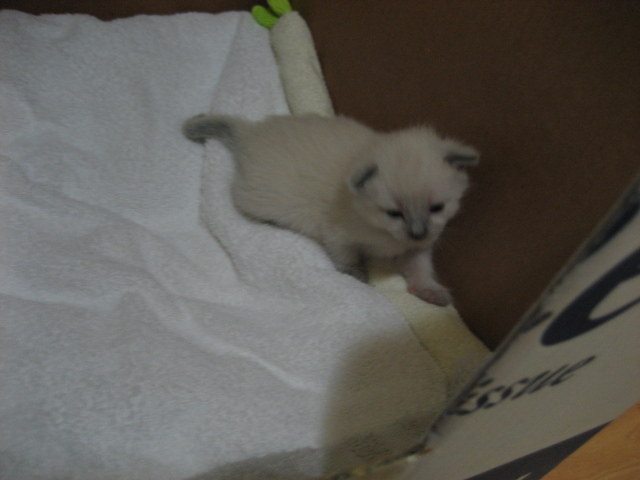 is my kitten blue or blue cream point?
Question
polar bear
hi Jessica, our mommy cat is a blac
is my kitten blue or blue cream point?
Question
polar bear
hi Jessica, our mommy cat is a blac
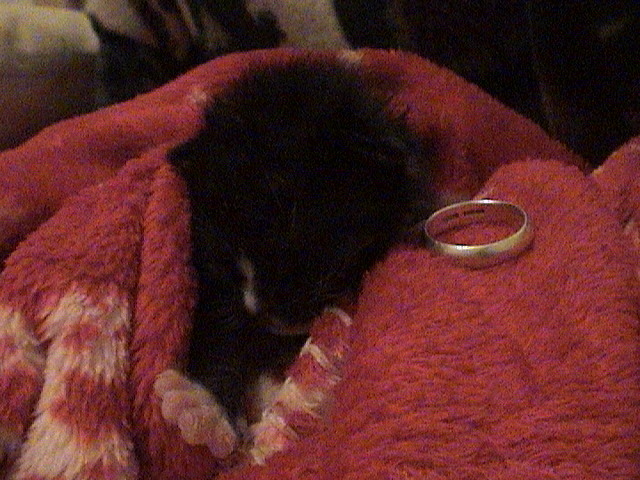 Orphaned Kitten
QuestionQUESTION: My partner and l are very much animal
Orphaned Kitten
QuestionQUESTION: My partner and l are very much animal
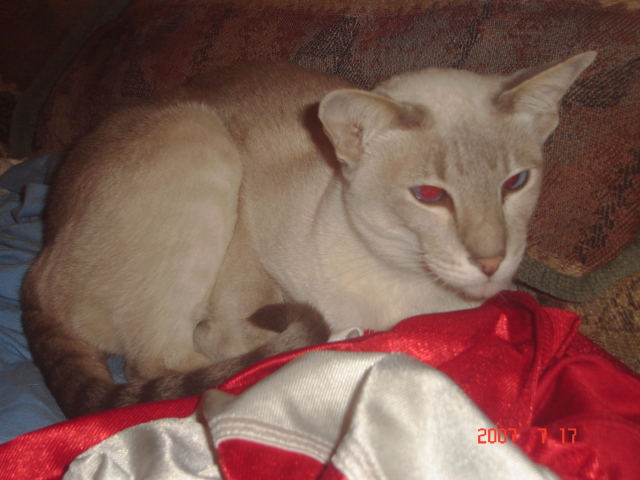 Siamese tracks feces around the house
Question
Dirty Foot
I recently adopted a wonderf
Siamese tracks feces around the house
Question
Dirty Foot
I recently adopted a wonderf
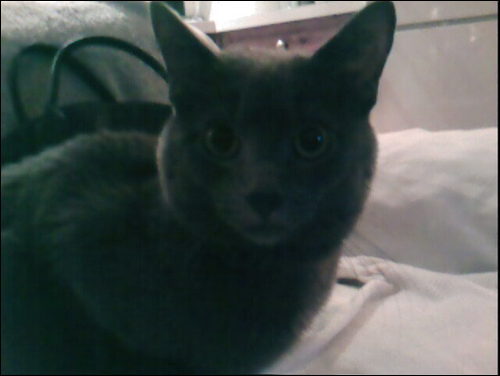 My cat pees on the carpet!
Question
My Cat Tigger
Hi I have a male cat he i
My cat pees on the carpet!
Question
My Cat Tigger
Hi I have a male cat he i
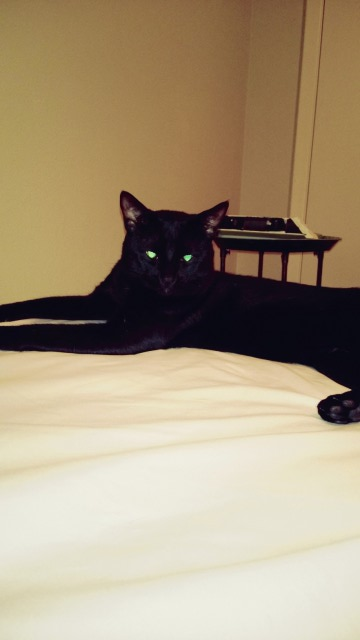 Missing unnuetered cat for 11 days worried sick
Question
My Sweet Boy Bel
First I want to thank
Missing unnuetered cat for 11 days worried sick
Question
My Sweet Boy Bel
First I want to thank